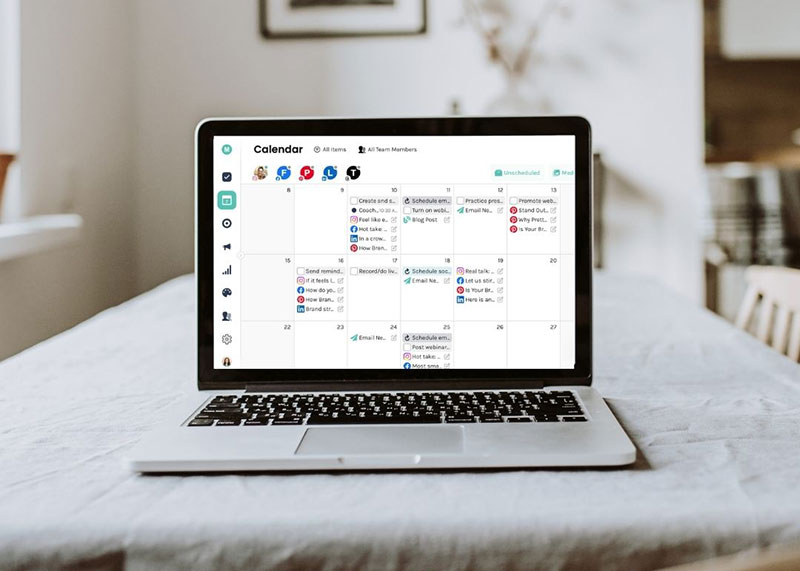Oh, I’ll bet you’re excited about this one. Yup, market research—the thrilling pursuit of knowledge in your specific business world. Let's turn this usually snooze-worthy topic into some top shelf information. Because it’s critically important to do market research when launching a business and even more important to keep the research going as your business grows and the competition heats up. So, buckle up, because we're about to make market research exciting—or at least teach you what you need to know about it!
Like most things, start your market research by setting goals
Start by clearly outlining the goals of your market research. Are you looking to understand customer preferences, assess market trends, or evaluate the competition? Regardless of what your goals are, having well-defined objectives will guide your research efforts (and make sure you're not wasting your time just going down any 'ol rabbit hole).
Identify your target audience
Determine who your ideal customers are because (in addition to your goals) your customers influence the perspective you'll look at things through. Create customer personas that include basic demographic information, preferences, and behaviors as well as the problems they are experiencing that are motivating them to look for a product or service like yours. This will help you tailor your research to the specific needs and interests of your audience.
Pro-tip: You can build out your customer personas in your marketing strategy within Enji!
Choose your research methods
There are various research methods to consider:
- Surveys and questionnaires: Create well-designed surveys to gather data. Consider a mix of closed-ended (quantitative) and open-ended (qualitative) questions. Create surveys that feel like a fun questionnaire rather than a tedious task. Sprinkle in some questions that reflect the personality of your brand. Fun brand? Add some fun questions. You want to ask questions that will help you understand their problems so you can target your messaging and solutions to ways of solving them. Turn your survey into a journey of discovery, not an IRS form. And if you have to incentivize people to complete the survey with a Starbucks gift card, do it.
- Interviews: Conduct one-on-one or group interviews for more in-depth insights. Think of yourself as a friendly explorer on a quest for knowledge. Strike up casual conversations with your customers, like you're chatting over a cup of coffee. Ask about their experiences, preferences, and wishes. Remember, you're not conducting an interrogation; you're having a friendly chat about their world. This can be done in one on one meetings and conversations (preferred) or create a customer survey that you can send to your list (explained previously).
- Focus groups: Bring together a small group of people to discuss specific topics. Have an array of questions you want feedback on and probe deeply until each voice is heard. Sometimes the quietest person in the group is holding the most critical input. Discuss your product or service as if you're dissecting a movie script—everyone's opinion matters, and maybe there's snacks involved?
- Observational research: Observe customer behavior in natural settings. Make a field trip to where your potential customers like to shop and hangout. Watch what they do, how they interact with products, and what captures their attention. This is your chance to find your inner Dr. Jane Goodall.
- Data analysis: Utilize existing data, such as sales figures and industry reports.
Collect and analyze your data
Whatever way you choose to do your research, follow through with it and document your data. If conducting surveys, use online tools or traditional methods like phone surveys—just be ready to take notes. If using interviews or focus groups, record and transcribe the discussions (which you can use AI notetakers if you're doing things over Zoom!).
Then you have to organize and comb through what you've collected. Look for patterns, trends, and key insights. You can do this the good old fashioned way or you can run things through an AI chatbot like ChatGPT and prompt it to look for what you want—which is a huge time savings!
Write your report and think about what to do next
Once you've done the digging, you should summarize your findings and key takeaways. Include key insights, trends, and any actionable recommendations (again, you can use AI to get the draft done real quick). Most importantly, go back to the goals you set. What was it you were hoping to learn from taking the time to do market research? Whatever that goal was, spend extra time focused on finding your insights that show you something helpful but also take a step back and see what else you can learn. Things that help you better understand:
- Your customers (what motivates them to buy and how they decide on what to buy)
- Your competition (because no one is building a business in a bubble where you are the only option)
- How you can better price your products and services for profit and to be competitive
- How your customers are finding you (read: your marketing)
- What people think about your business and brand
- The future products and services you might consider creating
- Your advantages and disadvantages (in general)
Then, based on your analysis, come to conclusions about your market, opportunities and threats, customer needs, etc.—and build a list of action items you want to take/complete in order to set yourself up for success. From there, you've got to act on the insights gained from your research! Implement changes to your products, services, or marketing strategy accordingly. Oh—and be sure to keep your eye on things so you can react if anything changes.
Don’t forget, market research is an ongoing process like most everything when it comes to running a small business. So do yourself a favor and regularly revisit and update your research to make sure your business remains well-informed and adaptable to the changes going on around you. Market research can (and should) be kind of exciting because it’s a great opportunity to engage with customers on a human level—and find out new things! See, I told you this would be fun!





